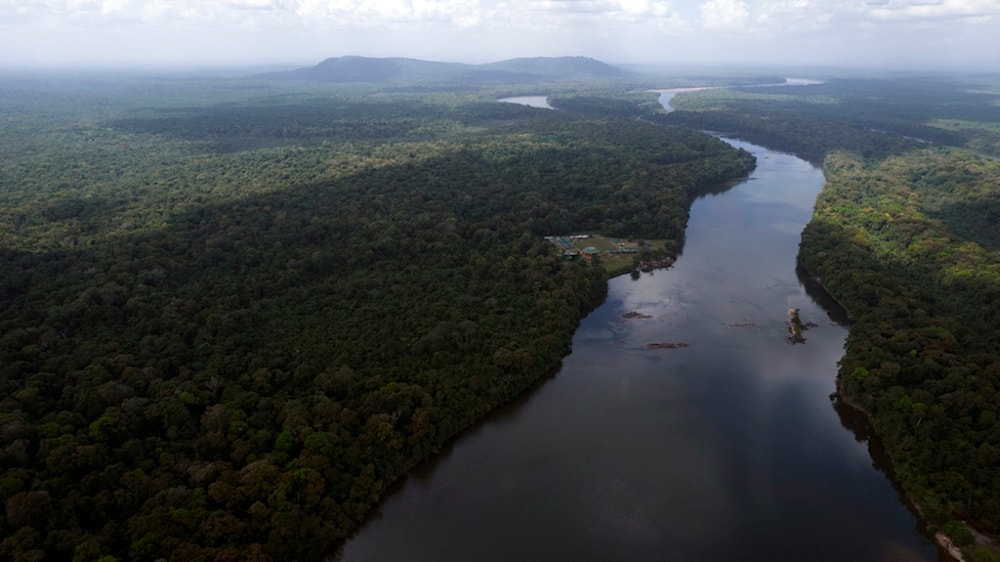Britain to deploy naval warship to Guyana, amid Essequibo dispute
The British Ministry of Defense reveals that a naval warship will be deployed to Guyana waters "as part of a series of engagements in the region."
-

The Essequibo River flows through Kurupukari crossing in Guyana, Nov. 19, 2023. (AP)
On Sunday, the British Ministry of Defense revealed that Britain has decided to dispatch a naval ship, the Royal Navy patrol vessel HMS Trent, to the waters coasting Guayana following tensions between the Commonwealth state and Venezuela over the Essequibo lands.
"HMS Trent will visit regional ally and Commonwealth partner Guyana later this month as part of a series of engagements in the region during her Atlantic Patrol Task deployment," a spokesperson said.
This comes after a British junior foreign minister visited the former British colony to extend Britain's support in light of the circumstances.
In response to Britain's statement, Venezuelan Defense Minister Vladimir Padrino took to X and declared that Venezuela is "on alert following provocations that put at risk the peace and stability of the Caribbean and our America."
¿Un buque de guerra en aguas por delimitar? ¿Y entonces? ¿Y el compromiso con la buena vecindad y la convivencia pacífica? ¿Y el acuerdo de no amenazarse y utilizar la fuerza mutuamente en ninguna circunstancia?
— Vladimir Padrino L. (@vladimirpadrino) December 24, 2023
¡Seguimos alertas ante estas provocaciones que ponen en riesgo la… pic.twitter.com/7nqifgGULn
Guyana and Venezuela agree on non-violence in Essequibo dispute
Both incidents incited skepticism, knowing that Venezuela and Guyana had come to an anti-violence agreement to moderate tensions.
According to a joint statement by Guyana and Venezuela earlier in December, the use of force and threats to settle the disputed Essequibo territory will be averted to resolve matters of conflict within international law, such as the 1966 Geneva Agreement.
Published by Venezuelan President Nicolas Maduro, the statement said, "Guyana and Venezuela, directly or indirectly, will not threaten or use force against one another in any circumstances, including those consequential to any existing controversies between the two States ..."
It was "agreed that any controversies between the two States will be resolved in accordance with international law, including the Geneva Agreement dated February 17, 1966," the statement added.
A meeting in Brazil is also expected to happen within the next three months, as agreed by both sides, to "consider any matter with implications for the territory in dispute" and establish a joint commission with foreign ministers and technical persons to tackle the dispute.
Read more: Guyana: A crushing victory of the Venezuelan people

 2 Min Read
2 Min Read








